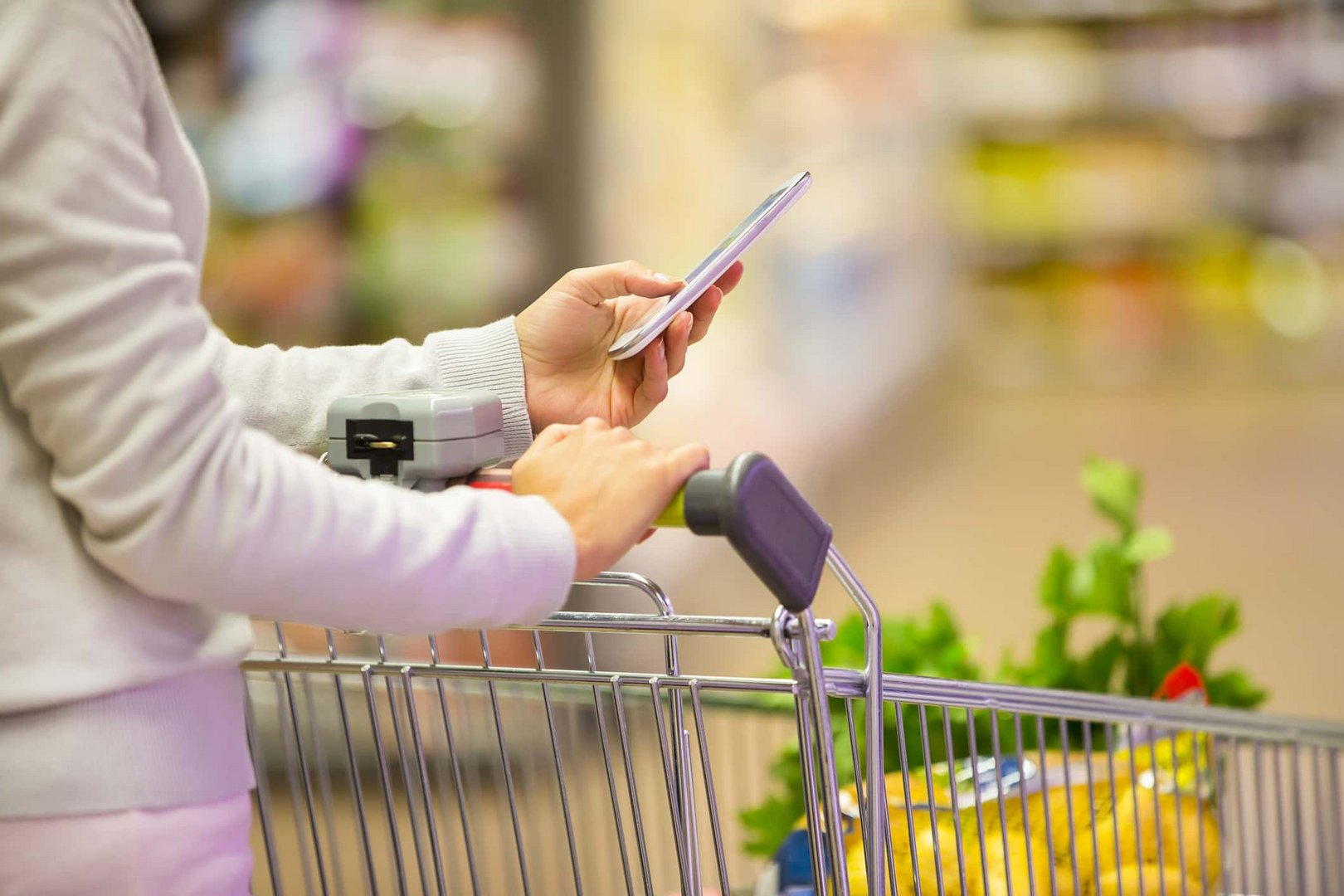Customers who refuse to download the apps say they are discriminated against
Smartphones may be pervasive – that extra appendage we never knew needed – but there is a still a significant minority that cannot or do not want to own one.
And they are made to feel increasingly excluded, even when they visit a supermarket.
A supermarket app can now be added to the endless list of what you need your smartphone for, along with banking, socialising, getting around, or booking holidays, with many of Cyprus’ big name supermarket chains introducing their own mobile applications.
In many of these cases, customers who download and use these gain access to exclusive discounts and offers. This in turn provides supermarkets with valuable data on their customers’ consumption habits.
However, for those unable or unwilling to download their local supermarket’s mobile application or use a smartphone at all, does this create an unfair shopping experience, and even a two-tier pricing system?
This is certainly how many without smartphones feel as they find themselves paying more at the checkout.
“I feel discriminated against,” said Ioanna Pavlou.
“I don’t have the app and even if I did want to download it on my phone, you also need the internet on your mobile.”
She explained that she had paid four euros more than the listed price for app users for two packs of toilet roll.
“Discounts used to be for everyone. But these are conditional discounts. Get a smartphone, get the app, get mobile internet. Discounts only if you do these things we want you to do,” she said.
The question of discrimination is one which becomes more pertinent when the general age range of smartphone users is considered.
According to statistics released by the European Union, those aged 55 and over in Cyprus are just half as likely as those aged between 18 and 34 to own a smartphone, calling into question whether such policies on the part of supermarkets are, at least inadvertently, ageist.
In addition, Cypriots who do own smartphones pay more for mobile data than almost any other country in the world.
According to research carried out by Visual Capitalist, Cyprus is the sixth most expensive country in the world to buy mobile data, with one gigabyte of data costing US$13.56. This is almost ten times as expensive as data in the United Kingdom and almost 19 times as expensive as in Turkey.
This opens up the possibility of some would-be smartphone consumers in Cyprus being priced out of owning and using one, and these consumers would therefore effectively be penalised financially by supermarkets.
Cyprus Mail spoke to supermarkets’ association executive director Andreas Hadjiadamou, who was keen to reassure customers that the digital revolution would not stop those without smartphones from accessing supermarket discounts.
He said discounts exclusive to application-users had only been seen “in limited cases” and that supermarkets are and will be continuing to offer discounts to users without smartphones and market them in traditional ways.
Hadjiadamou said that supermarkets have no intention of ceasing to produce discount flyers, though acknowledged that the number of flyers had been scaled back somewhat due to “environmental concerns”.
He said that consumers should feel reassured that they will not be left behind by supermarkets as they introduce mobile aps and that they will continue to offer discounts to their offline clientele.
However, he did also place some responsibility on the consumers themselves, saying “if they are not satisfied with the supermarket they use, they should go and shop somewhere else”.
Savvas Savva, spokesperson for the consumer protection service, told Cyprus Mail that the discounts offered through the applications function as a way of “rewarding those who obtain membership” of supermarkets.
He said that as far as the service is concerned, the existence of memberships via an application does not encroach on the rights of consumers and therefore lies outside its remit.
“It is not in our hands,” he said, adding that even though he had used such an application for multiple years, it had only been of use two or three times.
The Third Age Observatory, which caters for the elderly, told the Cyprus Mail that it is aware of the issue, and that it is providing free computer literacy lessons to those who wish to gain access to the digital world.
At the same time, they acknowledged that many elderly people find it difficult to adapt to and to learn how to use new technologies. They added that in some circumstances there can also be a language barrier for these people, as “many applications and other digital services are in English”.
They said they are “in favour of people learning how to use technology” and encouraged those who are finding it difficult to take advantage of their free lessons.







Click here to change your cookie preferences